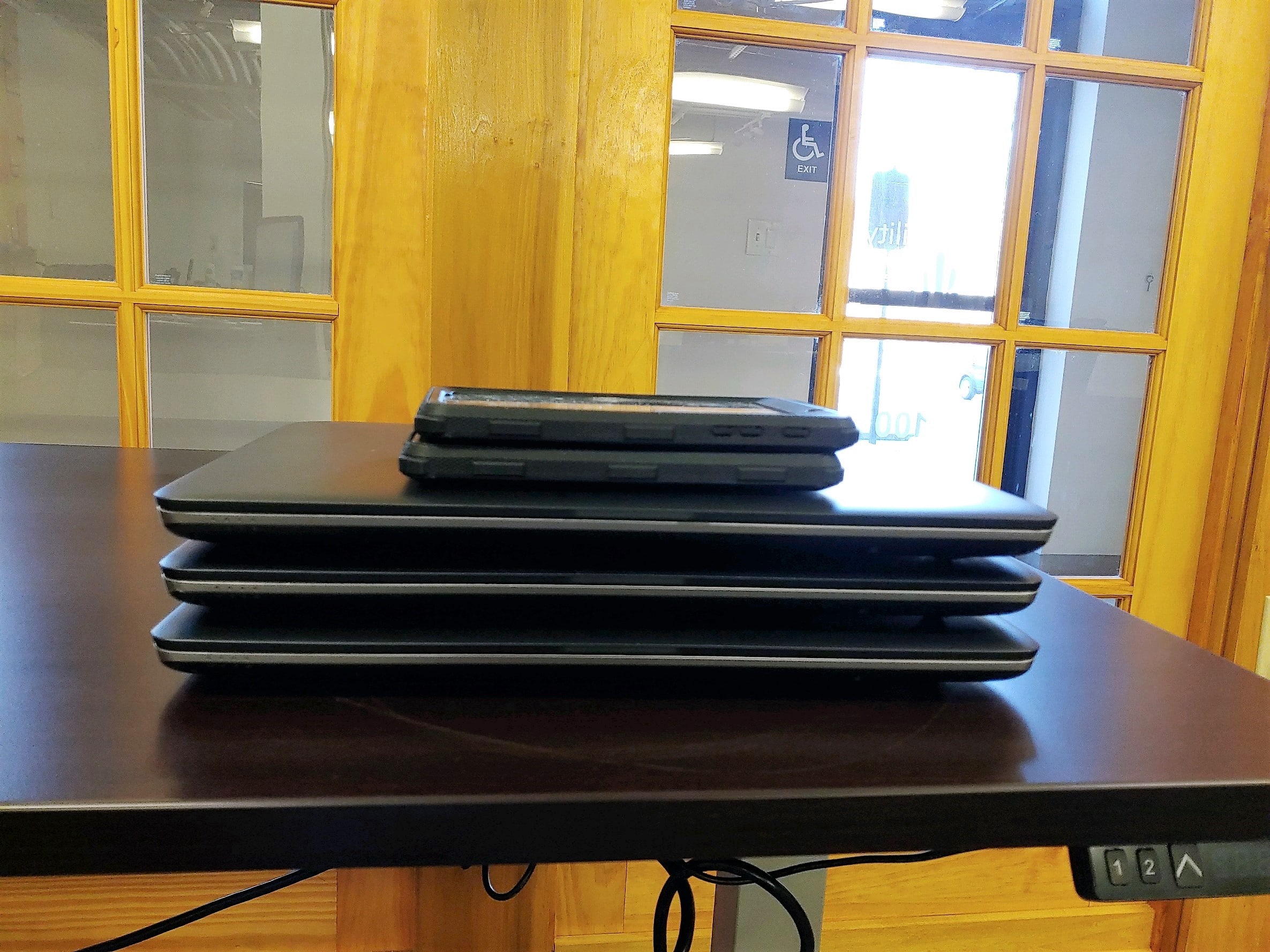 Jeff (Energy Consultant-Specialist), an Energility team member, has hands on experience with recycling electronics. He worked at Redemtech, now Sage Sustainable Electronics, and was able to see the recycling process up close.
Jeff (Energy Consultant-Specialist), an Energility team member, has hands on experience with recycling electronics. He worked at Redemtech, now Sage Sustainable Electronics, and was able to see the recycling process up close.
Sage Sustainable Electronics states, “based on objective market data for every device, we calculate when to repair, when to refurbish, even when to harvest parts and recycle” (http://www.sagebluebook.com/). They assist organizations in getting the most out of their electronics whether repairing/refurbishing for use or resale within the current organization to responsibly recycling an item. The GoodTogether program through Sage Sustainable Electronics also helps get digital equity to those with less access.
Another recommendation from Jeff on our journey to learn more about sustainability and electronics is e-Stewards. e-Stewards is focused on reducing the impact of old electronics by stopping “the export of illegal hazardous e-waste to developing nations and create a safe, green, and just world through sharing and using the principled and practical standard for electronics recycling and reuse” (http://e-stewards.org/about-us/the-e-stewards-story/). This was the issue that stood out the most from previous knowledge of recycling electronics, that items were often sent to places with less stringent human protections as well as the environmental protections for the collecting of such hazardous components of electronics. You can search by your address to find an e-Stewards recycler in your area.
 During the past month and half of looking into sustainable electronics, Energility donated a few laptops and tablets to PCs for People who has digital equality at the center of their mission. Their mission is to refurbish electronics and get them in to the hands of those where the cost of these items makes it hard to access technology that is vital to both education and work. They also have a low-cost internet service that can be purchased for those whose income is below 200% of the federal poverty limit. The no landfill policy at PC’s for People dictates that components that cannot be used in its current electronic are either used to refurbish another unit or are recycled by a third-party recycler.
During the past month and half of looking into sustainable electronics, Energility donated a few laptops and tablets to PCs for People who has digital equality at the center of their mission. Their mission is to refurbish electronics and get them in to the hands of those where the cost of these items makes it hard to access technology that is vital to both education and work. They also have a low-cost internet service that can be purchased for those whose income is below 200% of the federal poverty limit. The no landfill policy at PC’s for People dictates that components that cannot be used in its current electronic are either used to refurbish another unit or are recycled by a third-party recycler.
These are a few of the organizations that can be used when the need for upgrading your electronic becomes necessary. All three of these organizations look to make our electronic consumption less impactful for the planet and help bring to light the idea of digital equity.
Final thoughts